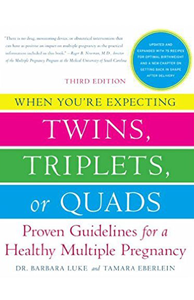The old saying is that nothing’s certain but death and taxes. However, for anyone in academics, the debate over tenure is every bit as predictable. Tuesday March 15th, MUSC Faculty Senate President, Dr. Angela Mudd, has convened a Special Meeting of the Faculty Senate and faculty at 7:45 am in Gazes Room 125 (Strom Thurmond Building). The meeting is to discuss the most recent proposals to revise the faculty post-tenure review (PTR) policy. This isn’t the first challenge to tenure at MUSC and it won’t be the last.
For those Post Script blog readers who are not in academics a good first question might be, “What is tenure?” Most universities and colleges in the United States and Canada have adopted tenure as a contractual right that grants teachers or professors permanent employment and legal protection against summary dismissal. Tenure was codified in the widely adopted 1940 “Statement of Principles on Academic Freedom and Tenure” of the American Association of University Professors.
Typical tenure systems allow faculty a period of time to establish a record of excellence in published research, ability to attract grant funding, academic visibility, teaching excellence, and administrative or community service. Many Universities limit the number of years a faculty member can remain on staff as a non-tenured instructor or professor. This is the classic “move up or move out” scenario common in many public University systems. These systems require the institution to grant tenure or terminate an individual, with advance notice, at the end of a specified period of time.
MUSC does not take this approach and there is no requirement for tenure to remain on the faculty. MUSC grants tenure under more restricted circumstances and is not required for promotion in an academic tract (Assistant to Associate to Full Professor). At MUSC there are no specific criteria for attainment of tenure. Instead, it’s based on a subjective assessment by your departmental chair, a Promotion and Tenure Committee of your faculty peers and the Dean that you’re an invaluable contributor to the mission and success of the Medical University.
If you own a McDonalds franchise or are a Boeing executive the next question has to be, “Why would you ever give tenure to an employee?” The concept of tenure arose as part of feudal law. Tenure was the principal system by which a person held land from a lord in exchange for rendition of service (military, agricultural or manufacturing tribute) and loyalty to the grantor. Basically, a right to hold or occupy something of value for an indefinite period of time in exchange for valuable service.
Academic tenure’s original purpose was to guarantee the right to academic freedom: it protects teachers and researchers when they dissent from prevailing opinion, openly disagree with authorities, or spend time on unfashionable topics. A similar approach was taken by the constitutional framers who realized that federal judges needed lifetime tenure to protect them from external pressure. The intent of tenure is to foster original thoughts and ideas, even if controversial or unpopular, by giving scholars the intellectual autonomy to investigate the problems and solutions as they see fit and to report their honest conclusions.
In less challenging times, tenure has long been a defining feature of professorial employment in North American colleges and universities. Tenure is offered based on a combination of research, teaching, and service, with each factor weighted according to the values of a particular university, college or department. The awarding of tenure becomes an important factor in the recruitment or retention of outstanding faculty.
At MUSC, tenure is granted to the internal medicine researcher who generates federal grant dollars for the university and appears likely to generate more; to the ophthalmologist who pioneers a new surgical technique and corners the local market; to the pediatric being recruited run a new Children’s Hospital; to the cardio-thoracic surgeon who has the best outcomes and reputation in a multistate region and to the Ob-Gyn who has a national reputation for the care of multiples.
In each case there is a common denominator. Tenure is granted to faculty who have proven themselves to be exceptionally productive and valuable to the university. In each case the tenured faculty is generating income, expertise, prestige or honor for the university and the expectation is that they will continue to do so. Tenure is a recognition of that achievement and a mechanism that helps bind that successful individual to the institution. Tenure is not a gift. Tenure is a tool that helps the university ensure its continuing success.
However, times change, clinical alternatives evolve, federal funding interests move on to new concerns, individuals and institutions change directions and sometimes colleges and universities regret their decision to grant tenure. Hence the tension that continuously exists between the tenured professors who believes they’ve earned their faculty position and the institution who want to move on and free up salary in the process.
Bold efforts to dismantle tenure have failed in the past, so more subtle approaches are required. I would encourage all faculty to attend the above mentioned Special Faculty Senate meeting and to carefully consider the “minor” changes being proposed to the Faculty Handbook regarding Post Tenure Review. Below I have added the current Faculty Handbook language, the revisions recommended by the Faculty Senate, and the revisions proposed instead by the University Provost.
Current wording in Faculty Handbook (2011 Version)
6.05 Post Tenure Review
Each tenured faculty member undergoes annual reviews. The faculty member’s annual review is integral in determining performance. The Department Chair/Division Head will use the five-point scale for annual reviews (unsatisfactory, marginal, satisfactory, very good or outstanding), but for the purposes of reporting to the Provost’s Office, overall performance will be summarized on a three-point scale (superior, adequate, inadequate). If a faculty member is rated as below satisfactory in a majority of applicable performance categories on the five-point scale, they will receive an “inadequate” overall evaluation on the three-point scale. Each year, the faculty member must be made aware of specific requirements to attain an adequate annual review so that he or she is given the chance to meet these specific requirements.
Recommended Changes in Wording Approved by the Faculty Senate August 12th, 2014. This version did not advance further than Senate approval (stopped in the Provost’s office)
6.05 Post Tenure Review
Each tenured faculty member undergoes annual review of academic performance. The Department Chair/Division Director will use the five-point scale for annual reviews (unsatisfactory, marginal, satisfactory, very good or outstanding; see MUSC Tenured Faculty Performance Evaluation Form [Annual Review], Appendix). For the purposes of reporting to the Provost’s Office, overall performance will be summarized on a three-point scale (superior, adequate, inadequate). If a faculty member is rated as below satisfactory in a majority of applicable performance categories on the five-point scale, s/he will receive an “inadequate” overall evaluation on the three-point scale. Each year, the Department Chair/Division Director must inform the faculty member of the specific requirements for attaining an adequate or superior annual review in the coming year. Requirements perceived to be unrealistic or unattainable may be grieved under policies detailed in Section 8 of the Faculty Handbook.
Proposed Revised Wording- Dr. Sothmann, proposed Jan 2016 **changes from the current wording in the Faculty Handbook are highlighted
6.05 Post Tenure Review
Each tenured faculty member undergoes annual review of academic performance. The Department Chair/Division Director will use the five-point scale for annual reviews (unsatisfactory, marginal, satisfactory, very good or outstanding; see MUSC Tenured Faculty Performance Evaluation Form [Annual Review], Appendix ). For purposes of reporting to the Provost’s Office, overall performance will be summarized on a three-point scale (superior, adequate, inadequate). If a faculty member is rated as below satisfactory in categories that represent the majority of the faculty member’s total effort, s/he will receive an “inadequate” overall evaluation on the three-point scale. Each year the Department Chair/Division Director must inform the faculty member of the specific requirements for attaining an adequate annual review in the coming year. Section 9.04 (Distribution of Faculty Activity) details the procedures for determining the distribution of faculty activity. The distribution of faculty effort and the performance necessary for adequate performance will be detailed annually in the development of the faculty contract. Any dispute regarding distribution of effort and/or performance will be resolved according to section 8.11 (Appointment Contract Dispute Resolution). The general grievance policy in sections 8.01-8.10 is reserved for section 6.05 (4) (d) of post tenure review.
Several of the proposed changes are indeed minor changes in wording. The key change is in the middle of the section that addresses how a tenured faculty member could be judged “inadequate” and then subject to potential termination. Instead of evaluating faculty performance in all 5 traditional categories (clinical, research, academic productivity, institutional service, and professional growth) the revised wording allows for the tenured faculty to be evaluated only in the single category that the Chair has designated as representing “the majority of that faculty member’s total effort.”
In short, a tenured faculty member whose area of research expertise is no longer fundable, but is now a great teacher, a respected citizen of the university, serving with distinction on multiple committees and taskforces, a respected national leader in his or her field and a writer of expert textbook chapters and reviews, can be assigned a majority of their effort to research. Surprise, they are now “inadequate.”
Sure, faculty can grieve if they don’t like the assignment of their effort. Tom Brady was allowed to appeal to Roger Goodell.
The most important question is why is the change being proposed? What does this change accomplish other than making it easier to dismiss a tenured faculty member? It doesn’t change the frequency, elements or intensity of the faculty evaluation. Just how it is interpreted. All other faculty are judged based on a total performance composite. What other reason could there be than to make it easier to deem a tenured faculty member “inadequate” if they fail to achieve expectations in just one category not selected by them?
Which brings us to the last question. What’s wrong with having a way to get rid of no-longer productive faculty? Considering that the Medical University of South Carolina decides for themselves who they give tenure to. Considering that MUSC is relatively stingy with that designation. Considering that they only give tenure to people they believe are invaluable and significantly contributing to their bottom line success. Considering that almost all of the tenured faculty will have demonstrated long term loyalty to the institution. Maybe the answer to that question is nothing more complex than it isn’t fair.
Roger Newman, MD is a tenured Professor and Maas Endowed Chair for Reproductive Sciences at MUSC and has been a member of that faculty for 30 years. The opinions expressed above are mine alone and do not necessarily represent those of the Medical University of South Carolina. As this “Post Scripts” blog goes to only a limited number of MUSC faculty please forward this to other non-subscriber faculty who may want to attend next Tuesday’s Faculty Senate meeting.








MUSC has a poor respect for faculty in general. The faculty is a constant turnover to replace with younger and lower paid faculty while claiming the best and brightest work there. The general treatment of faculty at MUSC is well below that seen in other institutions. This will be the 3rd or 4th time the faculty has pushed for changes in the tenure system. They also pursued a more aggressive faculty non-compete a few years ago that resulted in the loss of valuable faculty. The treatment of minority employees is also a concern in the system. This has been the recent topic of MUSC Board meetings where they are now being marginalized by the Board through oppressive actions to restrict their free speech. MUSC is anything but a leader. MUSC has become more of what academic medicine should strive not to be.
Harris,
Thank you for the comment. Your summary of university actions over the last several years is well remembered and consistent with my experience. Our department was hurt badly by the proposed more aggressive faculty non-compete which never happened but the threat drove away important faculty. I’ve only worked at one other academic institution a long time ago so I can’t really comment on other institutions. Do wish there wasn’t the constant push-pull between administration and faculty. Thanks for the follow………………….r
Excellent synopsis. I hope faculty will attend with eyes and ears open.
Agree. Thanks……………….r